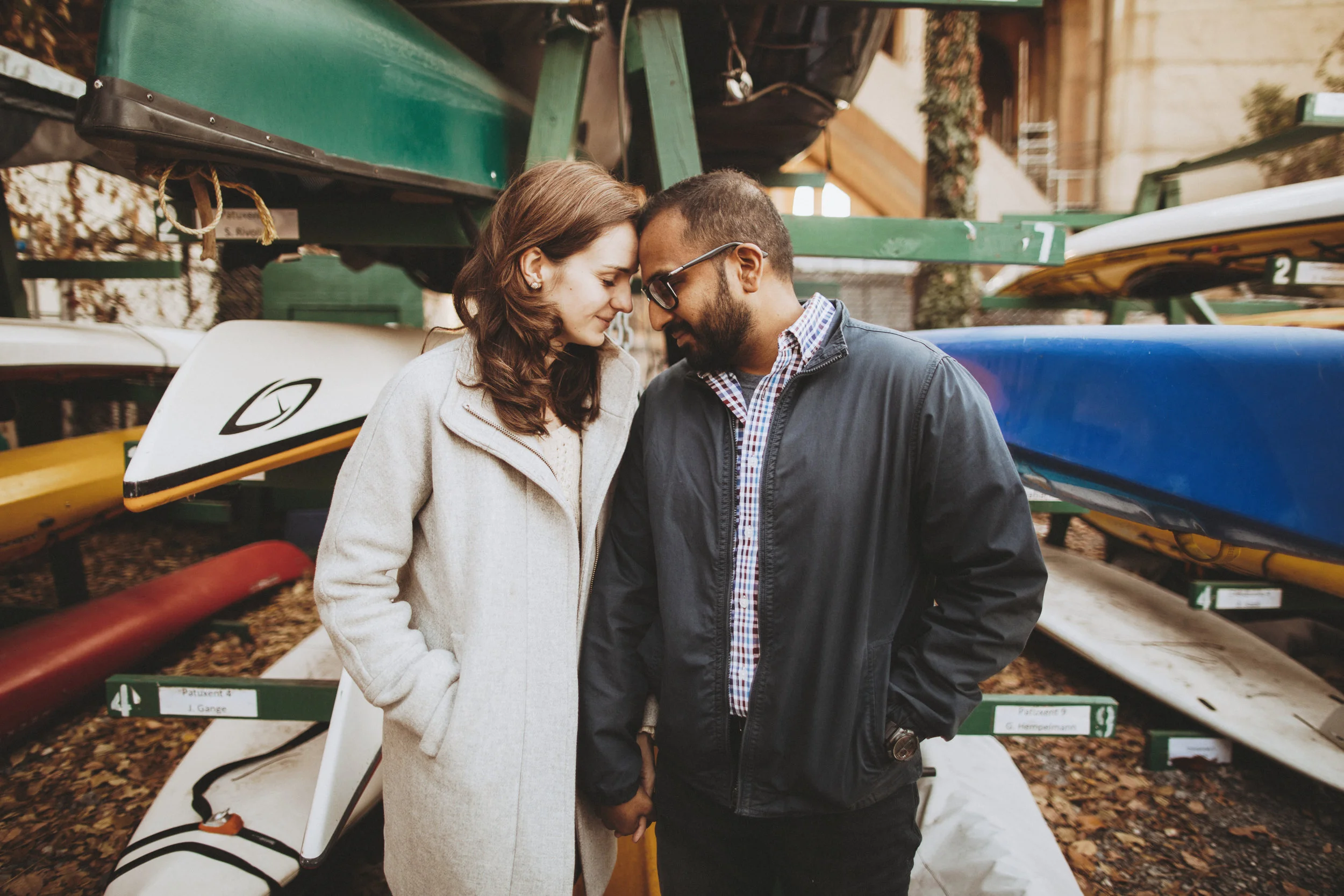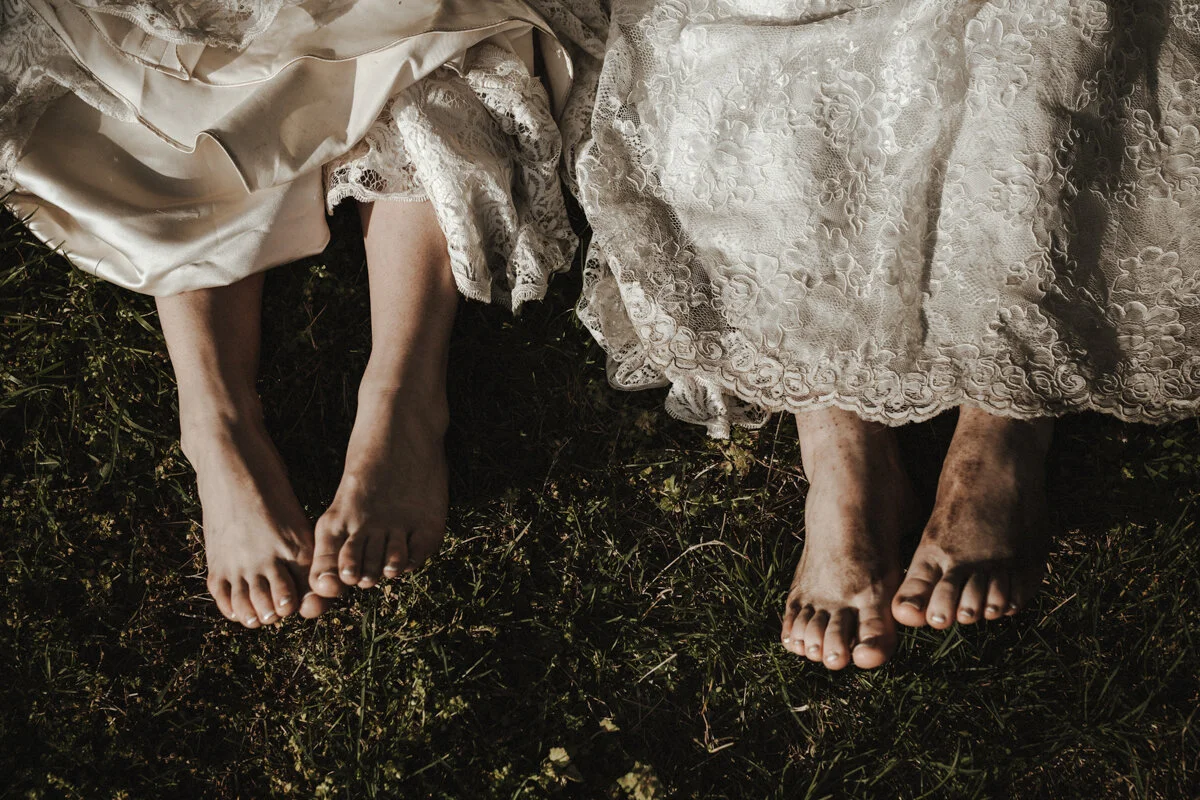3 Times to Trust Your Gut While Wedding Planning
/Georgetown Sunrise Engagement: Varun + Amanda // Photo by Nessa K
As a wedding planner, once a week I get an email from a woman in the midst of wedding planning where she apologizes for her behavior. A recent example: “I (naively perhaps) thought I could manage the day-of on my own as I plan events for my job, but am realizing I likely need help.”
I say the same thing to all of these women — and I say “women” because 95 percent of my leads come from people who identify as she/her (I know because I ask for pronouns on my intake form). I tell them that they don’t need to apologize. They’ve done nothing wrong. They’ve never planned a wedding before or, if they have, never with this particular set of circumstances. They’re just asking questions. As a professional wedding vendor, it’s my job to answer them.
The funny thing is that, most of the time, all wedding planning advice boils down to the same thing: What has the most meaning for you and your partner? That reality can be one of the most frustrating parts of planning a wedding; it’s both highly individual and inherently cookie-cutter. You know, rationally, that your wedding is about you and your partner but also, isn’t somebody “supposed” to wear white?
The good news: There’s only one way to mess up your wedding — and the chances that you will mess it up are very, very low. In fact, you’re going to “get it right” 99 percent of the time if you do what you always do as a rational, functioning adult.
Here are the three times to trust your gut while planning your wedding.
1. When you’re figuring out when to take wedding portraits
The two most common options for when to take wedding portraits on a wedding day are either before or after the ceremony.
If you take photos before, you and your partner will likely do something called a “first look.” This is when you see each other for the first time in your wedding regalia. The first look is often followed by photos with your wedding party (as applicable) and your family or other important loved ones (as applicable). If you take photos after the ceremony, it’s the same set-up but no “first look” since the first time you saw each other was at the start of the ceremony. Both options take the same length of time: 90 minutes.
The biggest pro of taking photos before the ceremony is you have a better chance of enjoying any post-ceremony happy hour you might have planned. The biggest pro of taking photos after the ceremony is you get that “I see my person for the first time at the actual ceremony” suspense and emotion.
Like all things wedding planning, people get very opinionated about the decision of when to take photos very quickly. Certain vendors may advocate hard for pre-ceremony photos, the most common reason being that you don’t want to “lose the light,” as in you don’t want to end up taking photos in the dark because photos taken in the dark don’t turn out as great.
Light is an important consideration — pro tip: check when sunset is on your wedding day — but guess what? If you want that moment of “woah!” as your ceremony begins and you see your person, you get to have that moment, the light be damned.
2. When you’re picking what type of music to play
I was recently asked what I, professional wedding planner, think are the very best songs to play at a wedding. I found it an extremely hard question to answer. How should I know what music matters most to a couple? I wasn’t there at their first concert together or that time they danced all night to Bowie.
Certain people will tell you that certain songs are better for the big musical high points of a wedding — think, the processional down the aisle, the recessional back down the aisle, any special dances. Don’t pick a song that’s too fast — you’ll be running down the aisle! Don’t pick one with any swearing — your grandma can’t take it!
Guess what? If you and your beloved just really love death metal, death metal should be featured somewhere in your wedding. Maybe don’t pick eight minutes of solid screaming — grandma, after all, does wear hearing aids — but does it have meaning to you? Question answered.
3. Always!
You may never have done this before but you’re not going to screw it up. Ask your vendors questions. Consider their advice (they do, after all, do this for a living). But if what they — or anyone else — recommend doesn’t jive with what you and your partner know has meaning to you, then you already have your answer.
Not sure what has value to you? You can figure that one out, too. Take five minutes and talk to your partner about how you two want to feel on your wedding day. Not what you want to spend. Not what you want to do. How you want to feel.
No matter what, you’re doing a good job. Keep going.
BONUS WORKSHEET:
I found this to be such an important exercise that I created a worksheet about it — and used it myself when I got engaged. Believe me, that five-minute conversation can save you hours of work later.
ELISABETH KRAMER
Elisabeth Kramer is a day-of wedding coordinator and writer based in Portland, Oregon. Learn more about her work at elisabethkramer.com.
Headshot photo by Marissa Solini Photography






















